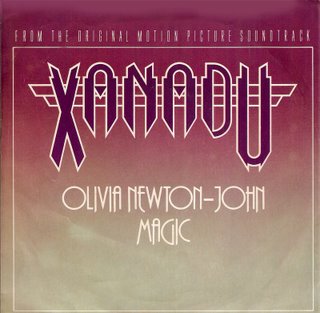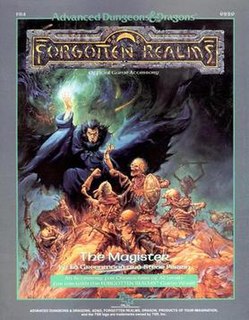A magic item is an object that has magical powers.
Magic item may also refer to:
A magic item is an object that has magical powers.
Magic item may also refer to:
Artifact, or artefact, may refer to:
In video games, a power-up is an object that adds temporary benefits or extra abilities to the player character as a game mechanic. This is in contrast to an item, which may or may not have a permanent benefit that can be used at any time chosen by the player. Although often collected directly through touch, power-ups can sometimes only be gained by collecting several related items, such as the floating letters of the word 'EXTEND' in Bubble Bobble. Well known examples of power-ups that have entered popular culture include the power pellets from Pac-Man and the Super Mushroom from Super Mario Bros., which ranked first in UGO Networks' Top 11 Video Game Powerups.

Zelda II: The Adventure of Link is an action role-playing video game with platforming elements. This second installment in The Legend of Zelda series was developed and published by Nintendo for the Family Computer Disk System on January 14, 1987. This is less than one year after the Japanese release, and seven months before the North American release, of the original The Legend of Zelda. Zelda II was released in North America and the PAL region for the Nintendo Entertainment System in late 1988, almost two years after its initial release in Japan.
The Chinese linking rings is a classic of illusion magic. In the traditional effect, solid metal rings appear to link and unlink, pass through each other, and form chains and other complex patterns and configurations. The rings may even be handed out to audience members for examination. Sometimes an audience member is invited onto the stage to perform alongside the magician as part of a "do as I do" routine.
In the Dungeons & Dragons fantasy role-playing game, psionics are a form of supernatural power similar to, but distinct from, arcane and divine magic.
A permalink or permanent link is a URL that is intended to remain unchanged for many years into the future, yielding a hyperlink that is less susceptible to link rot. Permalinks are often rendered simply, that is, as clean URLs, to be easier to type and remember. Most modern blogging and content-syndication software systems support such links. Sometimes URL shortening is used to create them.

The magic in Dungeons & Dragons consists of the spells and magic systems used in the settings of the role-playing game Dungeons & Dragons (D&D). D&D defined the genre of fantasy role-playing games, and remains the most popular table-top version. Many of the original concepts have become widely used in the role-playing community across many different fictional worlds, as well as across all manner of popular media including books, board games, video games, and films.
Aether, æther or ether may refer to:
The RPGA, was initially part of the organized play arm of TSR, Inc and later of Wizards of the Coast. From 1980 to 2014, it organized and sanctioned role-playing games worldwide. In 2014, it was replaced with the D&D Adventurers League.

A magic item is any object that has magical powers inherent in it. These may act on their own or be the tools of the person or being whose hands they fall into. Magic items are commonly found in both folklore and modern fantasy. Their fictional appearance is as old as the Iliad in which Aphrodite's magical girdle is used by Hera as a love charm.
The Arms and Equipment Guide is the name of two supplementary rule books for the Dungeons & Dragons fantasy role-playing game. Each describes various equipment that can be used in a campaign.

Tome of Magic is a handbook of rules and guidelines for the Dungeons & Dragons role-playing game. As its name implies, it is a supplement to be used to expand the magical options available in the game. It was first released for Advanced Dungeons & Dragons, 2nd Edition, and the name was reused for a book released for the 3rd Edition of D&D.

The Magic Item Compendium is a sourcebook written for the 3.5 edition of the Dungeons & Dragons fantasy role-playing game.

"Magic" is a song recorded by Australian singer Olivia Newton-John for the soundtrack to the 1980 film Xanadu. Written and produced by John Farrar, it was released as the lead single from the soundtrack on 23 May 1980. The single was number one on the US Billboard Hot 100 for four weeks beginning on August 2, 1980. On August 30, it was displaced from the top by "Sailing" by Christopher Cross.
Limited Edition(s) may refer to:
In the Dungeons & Dragons fantasy role-playing game, a magic item is any object that has magic powers that inherit it. These items may act on their own or be the tools of the character possessing them. Magic items have been prevalent in the game in every edition and setting, from the original edition in 1974 until the modern fifth edition. In addition to jewels and gold coins, they form part of the treasure that the players often seek in a dungeon. Magic items are generally found in treasure hoards, or recovered from fallen opponents; sometimes, a powerful or important magic item is the object of a quest.

The Magister is an accessory for the Forgotten Realms campaign setting of the first edition Advanced Dungeons & Dragons fantasy role-playing game. The book, with product code TSR 9229, was published in 1988 by TSR. It was written by Ed Greenwood and Steve Perrin, with cover art by Jeff Easley and interior art by Valerie Valusek.

Runes of Magic (RoM) is a massively multiplayer online role-playing game (MMORPG) developed by the Taiwanese developer Runewaker Entertainment and adapted for the English and German-speaking market by German company Frogster Interactive. Frogster has also opened servers for France, Spain, Poland, Italy, and Australia as well as servers dedicated to the European Union. After going through an open beta phase, the game was launched on March 19, 2009, and Chapter II – The Elven Prophecy was launched on September 15, 2009. The next chapter, Chapter III – The Elder Kingdoms, started April 22, 2010, however all of Chapter III did not become available until August 11, 2010. Chapter IV - Lands of Despair, was released June 16, 2011. The latest Chapter, Chapter V - Fires of Shadowforge, was released on June 12, 2012. The game client is free to download, and no monthly subscription fee is required because the service is funded by real money transactions (RMT) in the Runes of Magic Item Shop.

"You Made Me Believe in Magic" is the title of a 1977 international hit single by the Bay City Rollers, taken from their album It's a Game. The recording, a mid-tempo disco-styled pop tune featuring strings and horns, had its greatest impact in North America, where it was issued as the album's lead single in May 1977 to reach number 10 on the US Hot 100 in Billboard magazine that August. "You Made Me Believe in Magic" was the Bay City Rollers' third US Top 10 hit; the follow-up single "The Way I Feel Tonight" (#25) would mark the group's final Hot 100 appearance.
The artificer is a playable character class in the Dungeons & Dragons (D&D) fantasy role-playing game. The Artificer first appeared as a full class in the 3.5 edition of D&D and was introduced in the Eberron campaign setting. The artificer is a unique base class that reflects many of the core themes of Eberron.